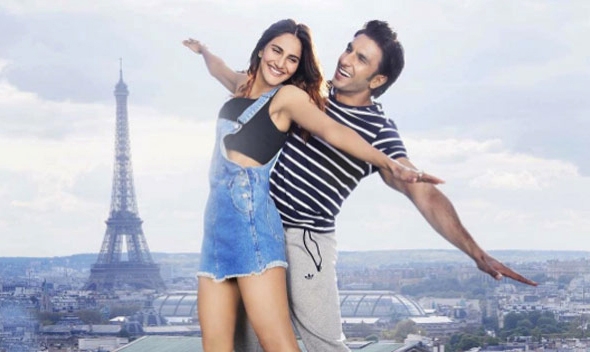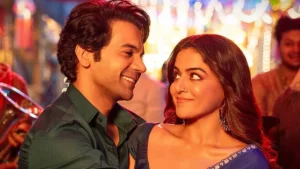
Aditya Chopra. India’s most reclusive film celebrity whose films could possibly have had more collective visibility than any other active filmmaker today. This is the score – three releases and each one of them a blockbuster. That 21 year old print of Dilwale Dulhania Le Jayenge (DDLJ) at Mumbai Central’s Maratha Mandir Cinema must be screaming for some respite. A distinction enjoyed by no film in the history of Indian cinema, DDLJ’s impact is invincible. Taking a break from his soppy magnum opuses, Chopra decides to experiment with his idea of gutsy cinema. Newly married and (seemingly) all-drenched in love, the director gives us Befikre that arrives minus Shah Rukh Khan, melodrama and schmaltzy twists.
Before we get into the film, we should ponder over India’s romantic comedy genre and its compromised existence. What our filmmakers end up making are essentially love stories – begin with a meet cute, conflicting conversations, songs, jokes and finally succumb to tumultuous life-changing emotions and an inevitably melodramatic climax. That is how a French Kiss became a Pyaar To Hona Hi Tha and An Affair To Remember transformed to a Mann. Even for the ones that stood the test of time, Jab We Met and Hum Tum (a desi take on When Harry Met Sally) had an overarching halo of love looming large on their heads than easy kinship seen in European and North American rom-coms. Aditya Chopra’s Befikre tries hard to fit the latter bill and it partially succeeds – just that it ends up standing on the fence. On one side there’s a glowing new world of befikre (carefree) filmmakers and on the other, a shadow of Aditya’s own legacy. The result is an immensely watchable yet highly sceptic, self-conscious film.
We totally get Chopra’s scepticism, if the reactions on the trailers were anything to go by. The smooches disappeared from the posters, the teasers turned tame soon after. More disturbing is Chopra’s resolve to make a coming-of-age romance while being crippled by his own fluffy cinematic sensibilities. His evolution as a writer is from a chaste Simran in DDLJ to a promiscuous Shyra in Befikre. This isn’t exactly a problem but there lacks a clear purpose in Befikre. Why are we served a story as old as hills?. Shyra or even Dharam’s characterizations, for that matter, aren’t shockers anymore in larger scheme of things. To ruin it further, Chopra doesn’t let his characters turn befikre in every way. Unlike his contemporary Karan Johar, he chooses not to let his heroine stray once touched by our hero. She calls it maturity but we recollect that line from Devdas – “Maano kisi farishte ne choo liya…” Not equating Shyra to a Chandramukhi by any means but the conventionality in character sketches radiate the very old Indian mindset. In a country that celebrates virginity, can our audience watch our leading lady make love with another man as our hero reeks in jealousy? Not quite! Also to be noted are a couple of mandatory homophobic jokes – stuff that elicit laughs no more. Chopra doesn’t miss out on a very eligible gentleman of a suitor for Shyra either. The guy wouldn’t sleep with her until they tie the knot. Cliché much?
On the brighter side, Befikre is one film where Aditya Chopra lets go off his usual artifice to a very large extent. There is no overkill of emotions and we relish the year’s most picturesque cinematography (Kaname Onoyama) and a background score (Mike McCleary) worth trading your left eye for. Aditya Chopra, for once, focuses on surroundings as well. There are several palpable long takes, gracefully written and enacted. Still frames wherein our leads express with profound confidence are a treat to watch, thus making Befikre not one of those super-chatty romantic comedies.
Unlike the recent Ae Dil Hai Mushkil and several other films in the genre, Chopra gives family members a role in the story. Although it is just the girl’s parents that we see, their conflict between changed dynamics and inherent reservations is worth noticing. Note that classic Indian moment where they feel completely lost at their ‘French’ daughter’s wedding. There is also a (slightly forced) pre-climax scene that bears a warm resemblance to the mother-daughter scenes from DDLJ. Talking about references, we see one where Shyra walks off to say ‘yes’ to her boyfriend’s proposal. Dharam looks on with a teenager’s curiosity – will she turn back? She doesn’t…
Dialogues (Aditya Chopra, Sharat Katariya) mostly work except for the standup comedy bits. Bearing semblance to a philosophy sitting, we feel bad for the restaurateur (a natural Aru Krishansh Verma) who hires Dharam. Score by Vishal-Shekhar is an absolute delight with ‘Labon Ka Karobaar’ hitting a boundary right in the beginning. Its picturization has the honesty that the film lacks. However, noticing the insurmountable hate and labels thrown around, we aren’t eligible to point fingers anyway.
Casting team Shanoo Sharma and Pierre-Jacques Bénichou deserve a token of appreciation for shortlisting the perfect set of actors who compensate the film’s deficiencies. Ranveer Singh is simply irreplaceable as Dharam. He is energetic, vulnerable and extremely earnest in this tailor-made part. Can we have more Dharams and less Bajiraos please? Vaani Kapoor is a fine actor, a fact she had proved with her debut in 2013. Her ability to confidently hold a frame is not what many female actors of today are blessed with. The disconnect, anyhow, arises with Yash Raj’s strange fixation for a certain body type – manufactured at Viva Mayr. The makers’ excuse might be that Shyra ought to ‘look’ like a French lass. In this process, we get a leading lady who is not easy on eyes. This is pitiable as the actor has an enviable presence and excellent Hindi diction. The supporting cast is carefully picked as each of them contribute memorable performances.
For something as frothy and detached as Befikre, Chopra’s decision to culminate the film with a Priyadarshan-esque mayhem is striking. What immediately follows is the most Aditya Chopra thing you would see in the film – a one-minute voiceover explaining why we should be befikre in love. Did I like it? GUILTY AS CHARGED!


[…] in Harry alias Harinder (Khan) as a tourist guide in Europe. Now, he isn’t a Parisian like Befikre‘s Shyra who knows the city inside out. Harry is an immigrant from Punjab (with an untold […]